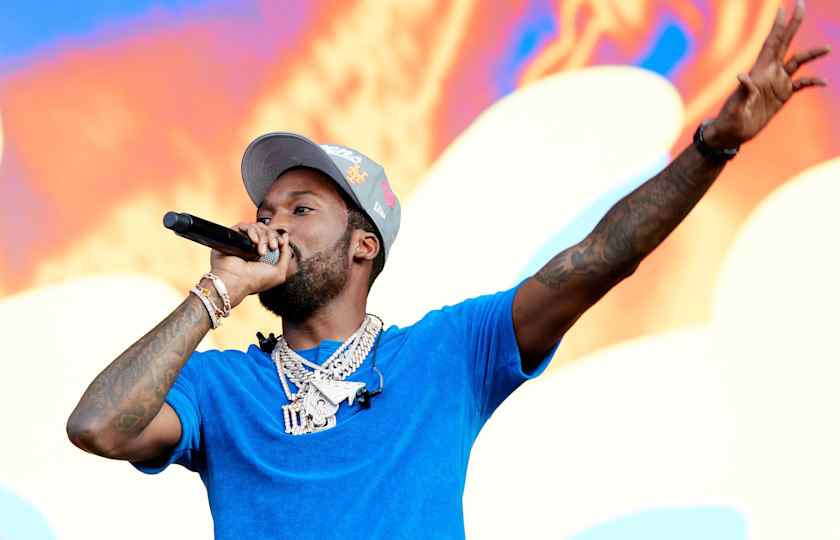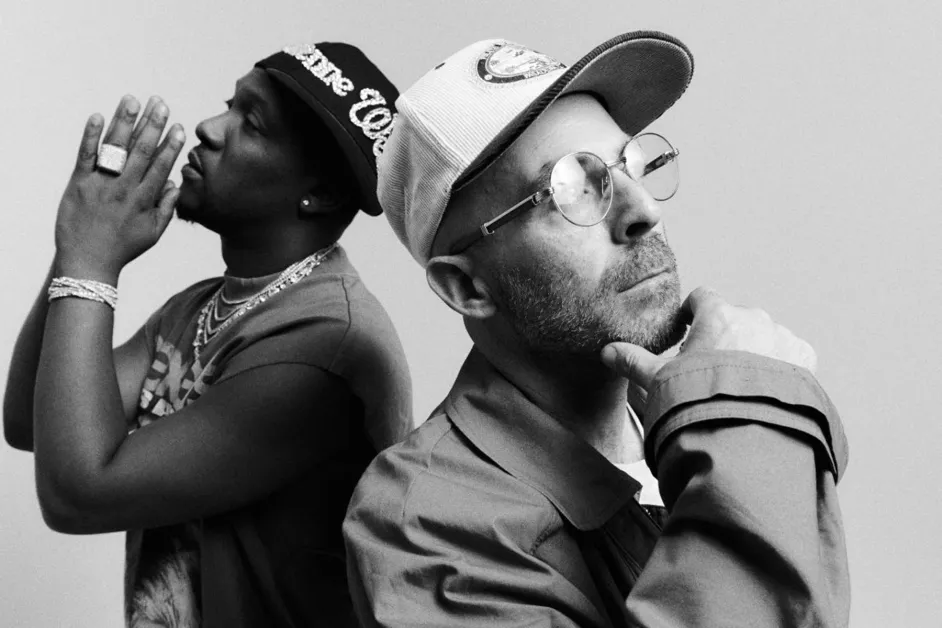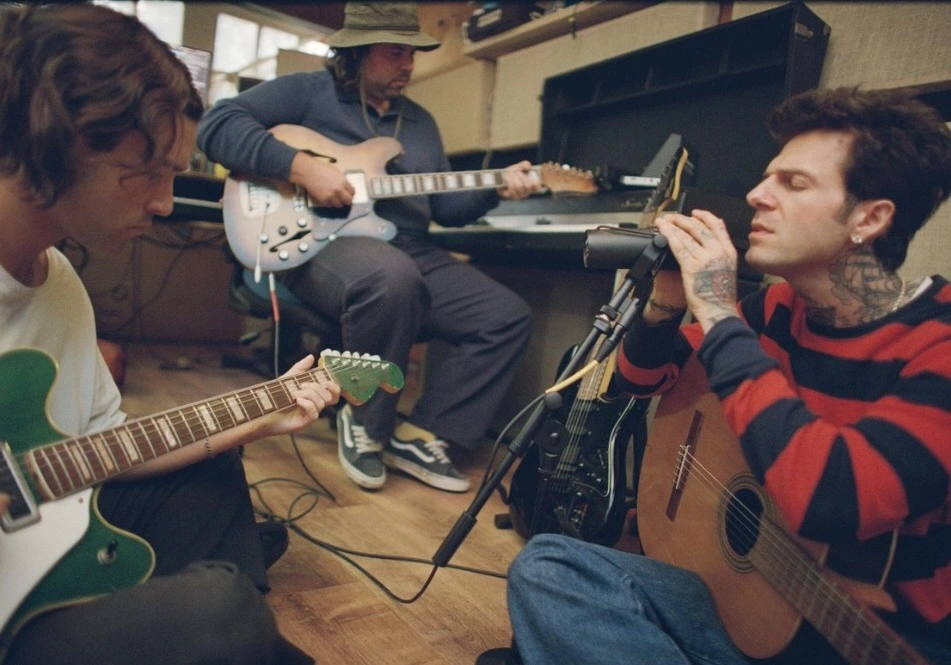At the corner of 18th Street and Berks in North Philadelphia, an adolescent rides a dirt bike past cracked sidewalks and crumbling row houses. He balances on one wheel, his head thrown back, the sky reflecting off his mirrored visor. To most passersby, he might look like a reckless teenager. But to Robert Rihmeek Williams — Meek Mill to the world — this is a living poem, a defiant sonnet to survival and self-determination.
Meek has always said that his story starts with the dirt bike. It’s not just a hobby or a symbol — it is the very pulse of his identity. From early mixtapes like Flamers to anthems that shook arenas, the dirt bike has roared alongside every verse. Even when the system tried to silence him, that engine whined on — a reminder that movement, even if chaotic, is life.
“I arrive in Philadelphia on an unusually warm Saturday in June 2025. The city pulses with anticipation for Roots Picnic, where Meek will headline, not as an opening act or a last-minute addition, but as the centerpiece — the homegrown hero who made it against every odd.”
I leave my downtown hotel and steer my rental car north, tracing Meek’s origin story like a pilgrim seeking a shrine. Center City’s gleaming skyscrapers and boutique-lined streets give way to the raw honesty of North Philly: corner stores with bulletproof glass, murals of slain teens, and stoops where old men play checkers and sip sweet tea.
The neighborhood has a cadence all its own, a rhythm you feel rather than hear. And everywhere — the vibration of engines, the smell of burning rubber, the echo of hip-hop leaking from cracked windows.”
A Neighborhood’s Son
To understand Meek Mill in 2025, you have to stand here, among these blocks that shaped his language, his metaphors, his entire universe. The neighborhood taught him how to pivot quickly, how to read faces like books, and how to trust no one and everyone at the same time.
Meek’s father, a local DJ and hustler, was murdered when Meek was just five. That wound, deep and formative, is woven into every bar he spits. Raised mostly by his mother, he watched her hustle tirelessly — braiding hair, cleaning houses, doing whatever she could to keep food on the table.
Meek turned to rap as a way out, but also as a way to preserve memory. Every verse is an archive: the gunshots that rang through his block, the smell of Chinese takeout on a Friday night, the glow of corner store neon at midnight.
By the time he was a teenager, Meek was a local legend, battling on corners, his voice hoarse from passion and hunger. Those early days weren’t about going viral or brand deals. They were about survival — about putting words together so fiercely that no one could ignore him.
The Chains and the Keys
In 2017, Meek’s life took a sharp turn when a probation violation sent him back to prison. The violation? Popping wheelies on a dirt bike in New York. That arrest became a national flashpoint, a symbol of the sprawling injustice embedded in the probation system.
While he sat in a cell, artists and moguls rallied. Jay-Z, Beyoncé, even Robert Kraft — unlikely allies, bound by the belief that Meek was more than a rapper. He became an avatar for a broken system, a living reminder of how quickly freedom can evaporate for anyone in America.
His release in 2018 wasn’t just a personal victory. It sparked the creation of REFORM Alliance, an organization dedicated to transforming probation and parole laws. By 2025, REFORM has helped pass bills in 13 states and impressioned the lives of over a million people. Meek’s story went from hyperlocal to national to global — a single man turned movement.
2025: A Different Arena
In 2025, Meek Mill isn’t just an artist; he’s an empire. His Dream Chasers imprint has evolved from a scrappy label into a bona fide incubator for young artists and entrepreneurs.
His newest protege, Philly native Saadiq Young, dropped his debut album this spring. Executive produced by Meek, the record bends gospel harmonies with trap percussion — a testament to the city’s dual soul: sacred and savage. Saadiq credits Meek not just for a record deal but for life coaching.
“Meek told me, ‘Your words can be weapons or shields. Choose wisely,’” Saadiq says backstage at Roots Picnic.
Beyond music, Meek is staking claims in tech and sports. His investments in several start-ups — including a Philadelphia-based e-scooter company and a fintech app focused on empowering young entrepreneurs — have turned him into a business force.
In February 2025, rumors swirled about Meek joining an ownership group bidding for a minority stake in the Philadelphia 76ers. While he hasn’t confirmed, his frequent courtside appearances and cryptic Instagram captions (“What if the kid from 18th & Berks sat in the owner’s box?”) suggest the rumor isn’t far-fetched.
Dream Chasers, Dirt Bikes, and the Next Chapter
This spring, Meek unveiled a new initiative: a North Philly community center focused on dirt bike safety, mechanical training, and creative arts. The center offers workshops in music production, video editing, and even urban gardening — a holistic approach to giving kids alternative pathways out of poverty and violence.
“When I was coming up, my dirt bike was my therapy and my curse,” Meek says in an interview with The Philadelphia Inquirer this April. “Now I want to make sure it’s only the first part for these kids — freedom without the curse.”
His latest music also reflects this duality. Released in May 2025, North Star, Meek’s new album, balances braggadocio with introspection. Tracks like “Roses in Concrete” explore the fragility of Black joy in America. “Bike Lanes” is an airy, reflective song featuring a verse from J. Cole and a surprise hook by Rihanna, which has dominated summer playlists and TikTok challenges.
In one standout line, Meek raps:
Mama had dreams, but the rent kept callin’ / I was breakin’ chains while my bros kept fallin’ / Now the city scream my name like it’s church on Sunday / Dirt bike angels ride with me down this runway.
The Return to the Stage
As dusk settles over Fairmount Park, anticipation crackles in the air like a live wire. When Meek takes the Roots Picnic stage, the city holds its breath. He steps out, head bowed, the same red Phillies cap low over his eyes.
The setlist is a masterstroke: old favorites like “House Party,” “Ima Boss,” and “Levels,” woven seamlessly with new anthems from North Star. Midway through, he invites Saadiq Young to perform, handing off the stage the way a big brother hands down a bike — carefully, but proudly.
Finally, the piano keys of “Dreams and Nightmares” ring out. Meek pauses, looks out at the sea of faces, some tear-streaked, some screaming, all united.
“Ain’t this what they been waitin’ for?”
The crowd answers in one massive, shaking roar.
Father, Son, and the Future
These days, Meek is more private about his family life. His son, Rihmeek, now a teenager, is rumored to be interested in music and fashion. On Instagram, father and son are often seen at Sixers games, fishing trips, or traveling abroad.
“I want him to know he got options,” Meek said in a recent sit-down with GQ. “When I was his age, I thought I had two options: rap or die. Now he sees a thousand doors. That’s all I ever wanted.”
Even as he builds empires and mentors artists, Meek insists he’s just getting started. He’s teased an upcoming memoir, tentatively titled Chasing Ghosts, and hinted at a film adaptation of his life story, with discussions reportedly involving Michael B. Jordan to play him on screen.
Beyond the Music
At every turn, Meek’s evolution challenges the narrow roles Black men are often assigned in America. He is not just an artist or an ex-convict or an activist or a businessman. He is all of these, and more — shifting lanes faster than a dirt bike on a Philly summer night.
His ventures into wellness and mental health advocacy are yet another unexpected turn. Partnering with local hospitals, Meek has launched a series of free therapy clinics in Philadelphia’s most underserved neighborhoods.
“I lost too many brothers to bullets and to their own minds,” he said at a ribbon-cutting ceremony this spring. “We talk about survival, but we forget mental survival. That’s the last frontier.”
A Global Voice
While his roots are deeply Philadelphia, Meek’s voice now resonates worldwide. His European tour in early 2025 sold out major arenas from London to Berlin. In Africa, he headlined Lagos’ biggest hip-hop festival, bringing out Nigerian stars like Burna Boy and Rema.
His international reach is a reminder: the fight for freedom, the dream of transformation, isn’t confined to American soil. Meek’s journey — from a corner in North Philly to global stages — is a universal narrative of resilience.
Impression
Back at 18th and Berks, the adolescent on the dirt bike finally slows, cuts the engine, and rests under a streetlight. The dusk is deep now, the city humming with hidden stories and quiet prayers.
In that youth’s eyes — wild, bright, searching — you see the same fire that once blazed in young Robert Williams. You hear the echo of a dream that refuses to die, even when the world tries to snuff it out.
Meek Mill’s story isn’t a clean arc with a Hollywood ending. It is messy, raw, and beautifully unfinished. It is an ongoing ride — full throttle, head high, no brakes.
As Meek often says on stage before disappearing into the night: “I’m still chasin’ it. Always will be.
No comments yet.








